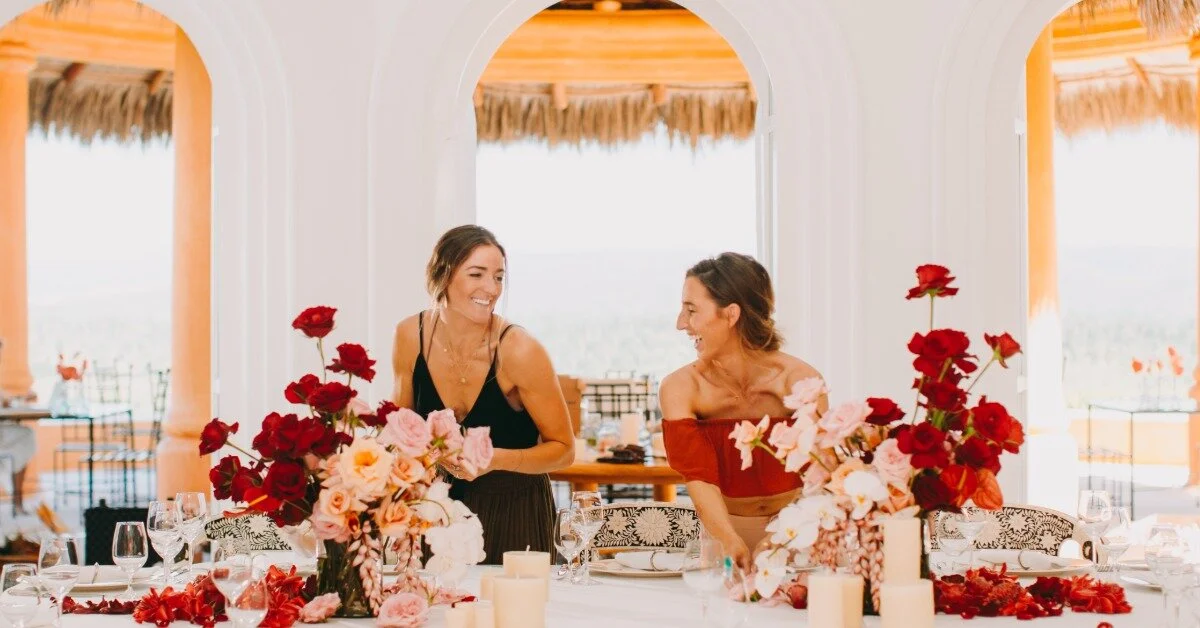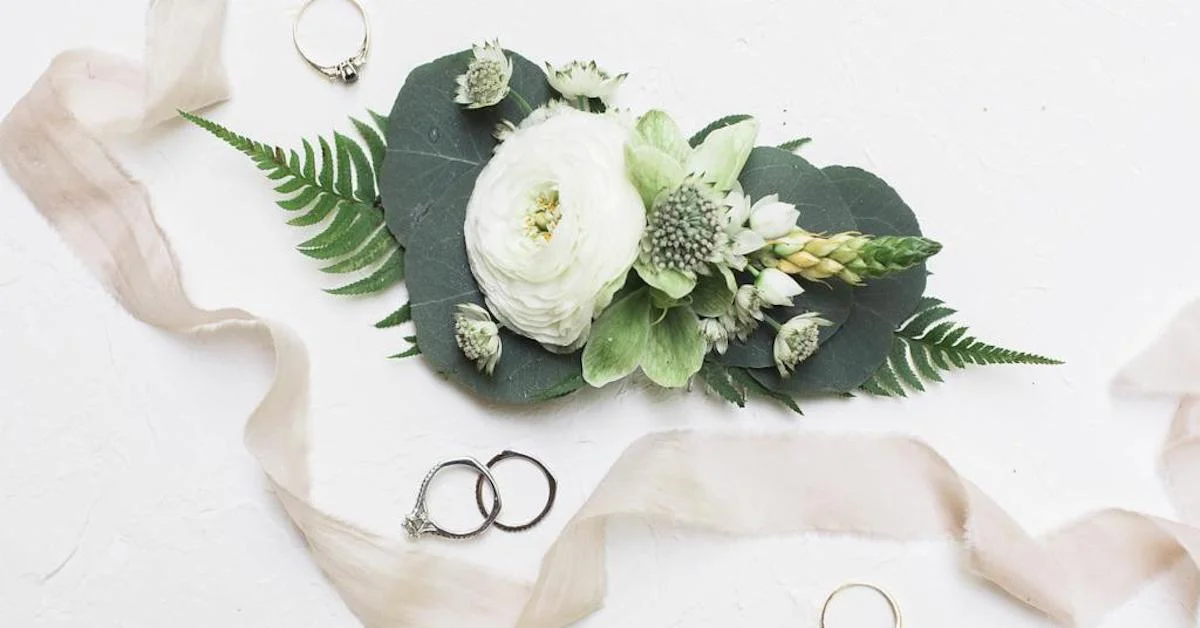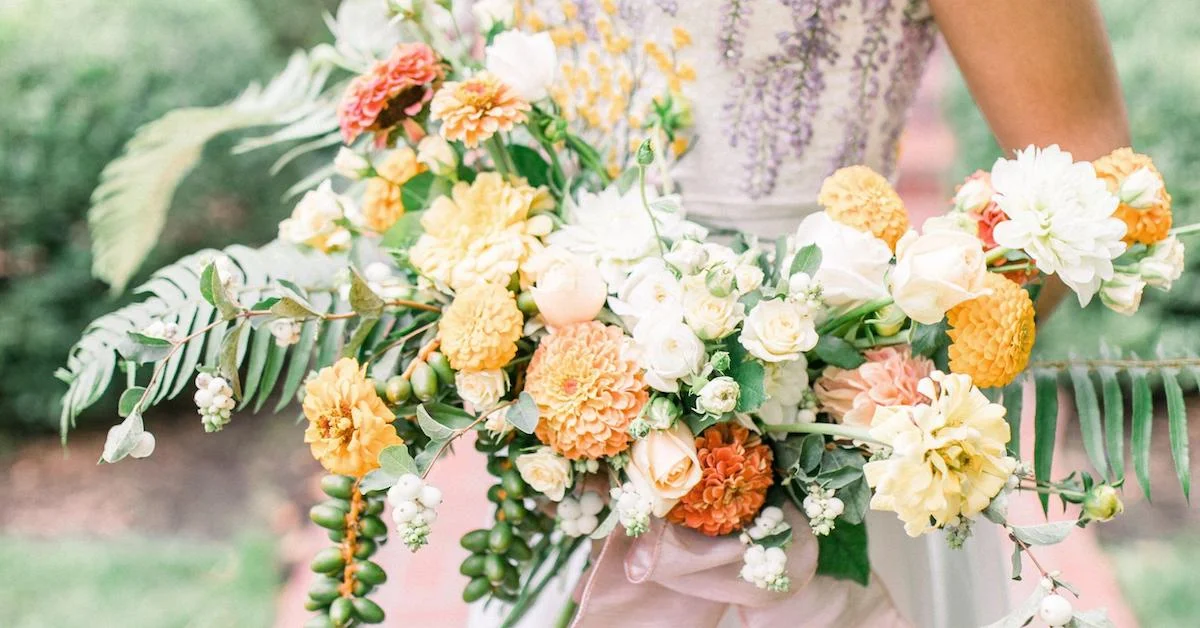Going into Business With Your BFF? Consider These Things First!
Halli Makennah Photography
Are you considering going into business with a friend?
Imagine this: You and your best friend do everything together. You hang out all the time, go on trips together, and know the ins and outs of each other's lives.
You're both interested in similar topics, admire each other's aesthetic and style, and now you're thinking about working on some floral projects together.
But wait! An alarm is going off—you’ve heard multiple successful business professionals warn to "never go into business with friends or family."
And now maybe you're thinking to yourself, "Why is that? I can't possibly think of anyone else I would trust more, who knows me more, and who would be more fun to be around along the way."
Starting a Business with a Friend: Gearing Up to Work Together
There’s quite a bit to consider and reflect on before starting a business with a BFF or dear friend.
Maybe you’re aware of your other half's weaknesses and struggles, while also being aware of your own. Or perhaps it’s easy to think they can do no wrong, and you imagine it would be a dream to team up together.
Regardless of your relationship awareness with your best friend, there are a few key steps, realizations, and commitments that are integral to building a successful business together.
Truly, it comes down to structuring your business properly, focusing on each other's strengths (and identifying weaknesses), and respect and love above all else for your business bestie.
Business Structure
First, consider how you will structure your business. How will you split profits? How will you designate roles? How will you stay organized and on task with running the business together?
It's important to be super clear on these things before starting a business together, or if you are already in it, start working on these logistics now. When your foundation is built upon achievable expectations for one other, you can trust your friend (and they can trust you!) to take on the various hats required to run a successful business.
Davis Gerber Photography
Flexibility
Along the way, you may find yourself falling into certain roles you may not have anticipated—or maybe you just gravitate toward a particular task you're good at.
Having open and honest conversations about how the processes work out is essential to continue building on your business foundation.
Sometimes, you will take on more work than your partner—and vice versa. The work flow of your business will naturally require more energy spent on a certain area at times, and perhaps less than another.
For example: If one of you is in charge of bookkeeping and business management, it may require the both of you to work through the backlog of this when you've had doubleheader weekends for a few months.
Know Your Strengths and Weaknesses
Naturally, as with any relationship or partnership, you both will have strengths and weaknesses.
Maybe you are a numbers gal, where charts and spreadsheets are something you know like the back of your hand. Maybe your partner enjoys putting together Instagram stories and planning the posting grid. Perhaps one of you really shines and lights up with a neutral color palette, while the other goes gaga for bright colored florals.
However, sometimes it isn’t evident what these strengths and weaknesses are—especially at first. Writing a list of the things that light you up and that you love to do, along with a list of what doesn't, is something that can help.
uBrocoff Photography
Ask yourself:
What do I love to design? What do I struggle with? (installations, bouquets, arrangements, etc.)
What business aspect do I enjoy? What bogs me down? (posting regularly on Instagram, checking in with clients, automating workflows, etc.)
What do I bring of value to the table? What could I work on?
When you have your list ready, share it with your partner. See where you can complement one other, learn together, and share responsibilities of the same task.
If you both love designing neutral color palettes, for example, maybe you take turns leading the design. Or perhaps you both agree to be open to each other's interpretation when designing, and you collaborate on the same project.
All in all, it is entirely up to you both on how you structure your business tasks, but the important element is that you can both come to an agreement and communicate about your strengths and weaknesses often.
These conversations should be treated as a serious business meeting—transparency and honesty are key—it builds trust that you are both trying your best and are open to improving your craft.
In addition to thinking through these crucial points when you’re building a partnership with your best friend, nothing is as important as this next one. If all else fails, this one thing will be the most critical block in your foundation—both in friendship and as business partners.
Put One Another First
This one is simple. You must look beyond the business's fluctuating aspects (money, clients, labor, roles) and put each other first. Easier said than done, maybe?
This means:
Be okay with taking more of the workload from time to time. If you agree to split everything 50/50 (for example), it does not mean that you count everything tit-for-tat. Accept the fluidity of give-and-take without keeping tabs on who's doing more and who's doing less—especially if you are both working hard toward the same dream!
Assist each other whenever possible—even if it's their designated "role."
Support each other just as equally in the losses as you would with the gains. You are in this together!
Be honest with the money that is in the bank account. Talk about this often, and talk through investment opportunities together.
To think through an extreme example, if the money you worked together for was all gone the next day, regardless of the reason, what would you do? Look to support each other first rather than point fingers.
Money is the biggest reason friendships and partnerships dissolve. The fewer attachments you have to money, the easier it will flow and fluctuate—and the less of a strain it will be on your relationship.
Aubrey Lynn Photography
If you've gotten this far, you can see that building a business with your best friend requires a lot more heart work and real talk before you start.
This is why we’re often advised not to venture down the road of working with your best friend! It may not be for everyone, and that's okay.
However, if you are considering it, these points are good places to start. Set yourself up for success, weigh out the pros and cons, weigh out your personality types, and weigh out each other's dedication to the same dream.
In complete transparency, my floral business with my best friend did not start on many of these points. It has been a long road of learning and hard discussions along the way, as well as many misunderstandings and resentments as a result of not talking about the issues that mattered.
We are both constantly learning, evolving, and changing along the way. Like any friendship, it requires work. Many will compare a partnership to a marriage, and it certainly has many key elements. But I am proud to say that our foundation is strong. We put each other first. We recognize each other's strengths and weaknesses. We are both willing to put each other first before ourselves. We respect each other and love one another. And we both decided that if our friendship is jeopardized in any way, that the business will be the one to go—not our bond.












